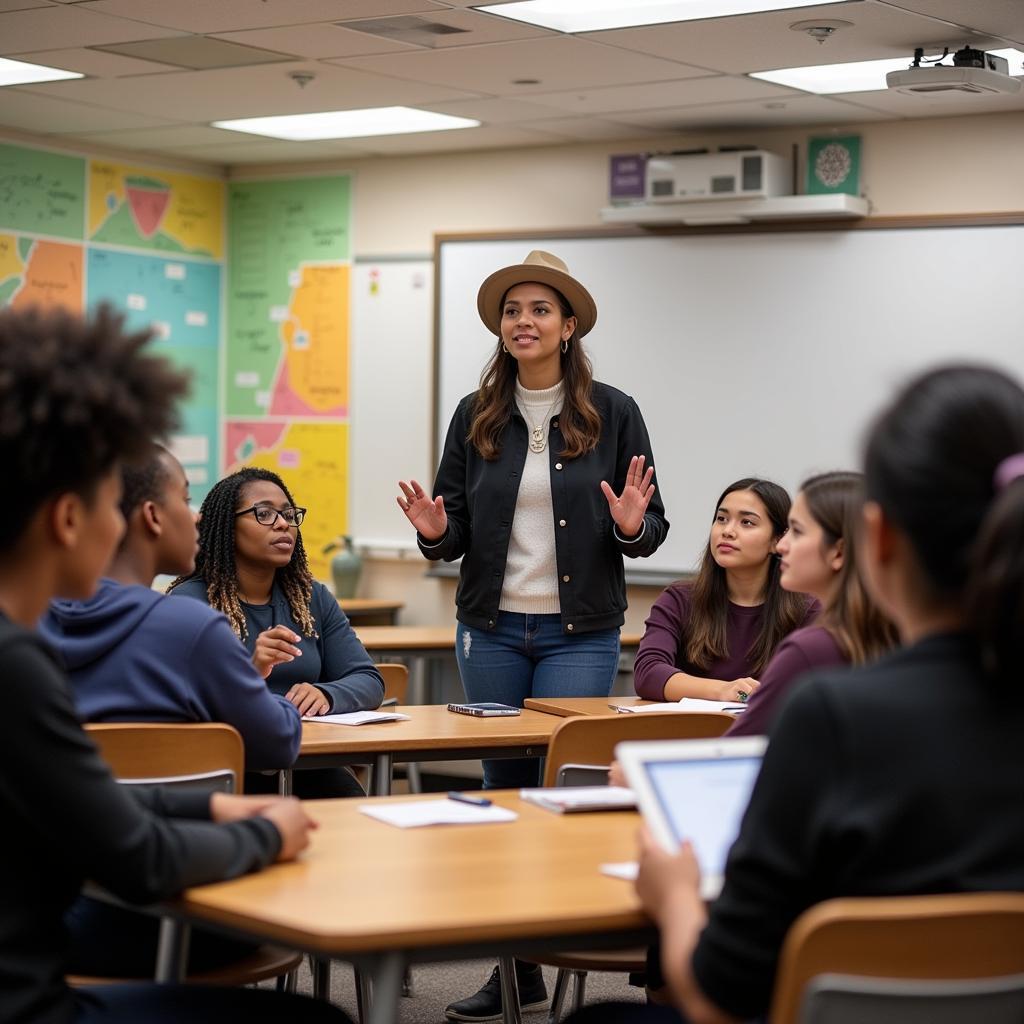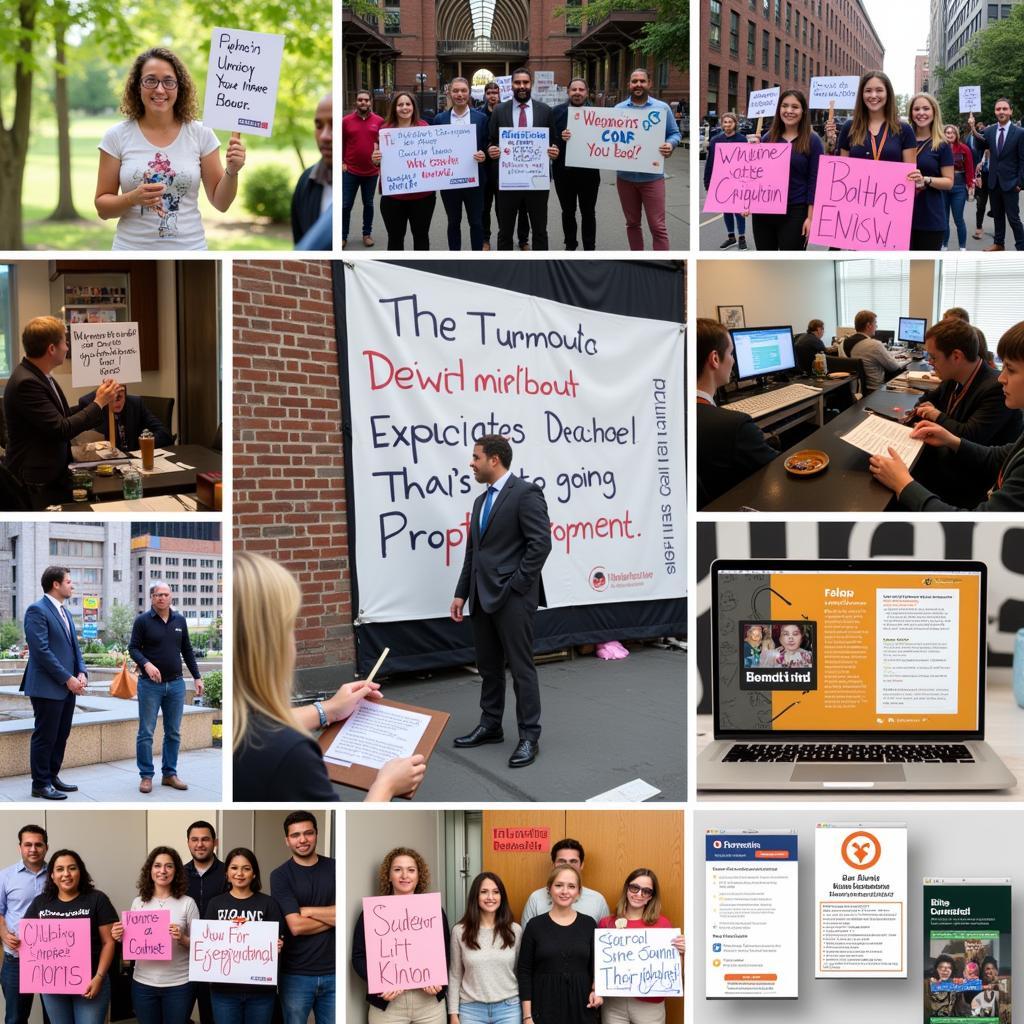Understanding African American Learning Styles
Learning is a multifaceted process, shaped by various factors, including cultural background. Understanding African American Learning Styles is crucial for educators, parents, and students themselves to foster an effective and inclusive learning environment. This article explores the nuances of these learning styles and provides insights into how to optimize learning experiences for African American students.  African American students participating in a collaborative learning activity
African American students participating in a collaborative learning activity
Exploring Cultural Influences on Learning
African American culture, rich in oral tradition, community engagement, and kinesthetic expression, significantly impacts learning preferences. Historically, storytelling, music, and movement have been powerful tools for transmitting knowledge and values within the community. This cultural heritage often translates to a preference for interactive, experiential learning approaches. Recognizing the significance of these cultural influences helps create a more culturally responsive and relevant learning environment.
What are some common characteristics of African American learning styles? While generalizations are never absolute, research suggests preferences for collaborative learning, kinesthetic activities, and oral communication. Many African American students thrive in environments that incorporate music, movement, and storytelling, reflecting the cultural significance of these elements. african american students taking exams
The Importance of Community and Collaboration
Community plays a vital role in African American culture, extending to the learning process. Collaborative learning activities, group discussions, and peer-to-peer mentoring can create a supportive and engaging learning environment that resonates with these cultural values. These approaches foster a sense of belonging and shared responsibility for learning, enhancing motivation and academic outcomes.
Addressing Common Misconceptions
It’s important to avoid generalizations and recognize individual learning preferences within any cultural group. Not all African American students learn the same way. Assuming homogeneity can lead to ineffective teaching strategies and perpetuate harmful stereotypes. Instead, focusing on individual strengths and needs is paramount to creating an inclusive and effective learning environment.
How can educators create a culturally responsive classroom?
Creating a culturally responsive classroom involves incorporating culturally relevant materials, acknowledging diverse learning styles, and fostering a sense of community. Using examples and case studies that reflect the students’ cultural background can make learning more engaging and meaningful.  A teacher engaging African American students in a culturally relevant lesson
A teacher engaging African American students in a culturally relevant lesson
Practical Strategies for Effective Learning
Incorporating various teaching methodologies that cater to different learning styles can significantly improve learning outcomes for African American students. Visual aids, hands-on activities, and opportunities for oral expression can create a more dynamic and engaging learning environment. african and american babies, african american art wallpaper free download
What role does parental involvement play?
Parental involvement is crucial for academic success. Open communication between parents and educators can help ensure that students’ individual learning needs are being met. Parents can provide valuable insights into their children’s learning preferences and cultural background, contributing to a more collaborative and effective learning experience.
Empowering Learners Through Understanding
Understanding African American learning styles is not about putting students in a box, but rather about providing them with the tools and support they need to thrive. By recognizing the influence of culture on learning, educators and parents can create environments that empower students to reach their full potential. Dr. Anika Thompson, an educational psychologist specializing in culturally responsive teaching, emphasizes, “Recognizing and respecting cultural nuances in learning is not just good practice; it’s essential for equitable education.”
How can we assess learning effectively?
Assessment should be multifaceted and reflect diverse learning styles. Incorporating oral presentations, projects, and portfolios alongside traditional tests can provide a more comprehensive picture of student understanding. Dr. Kwame Asante, a renowned educator and researcher, suggests, “Authentic assessment that reflects real-world applications of knowledge is key to understanding student learning.”
In conclusion, understanding African American learning styles is essential for creating inclusive and effective learning environments. By recognizing the impact of culture, incorporating diverse teaching strategies, and fostering collaboration between educators, parents, and students, we can empower African American learners to reach their full potential. This approach benefits not only individual students but also the entire educational landscape. african american museum address
FAQ
- What are some common misconceptions about African American learning styles?
- How can technology be used to enhance learning for African American students?
- What resources are available for educators seeking to implement culturally responsive teaching?
- How can we measure the effectiveness of culturally responsive teaching practices?
- What are some examples of culturally relevant teaching materials?
- How can parents support their children’s learning at home?
- What role does community play in supporting African American students’ academic success?
For any assistance, please contact us at Phone Number: +255768904061, Email: kaka.mag@gmail.com or visit our address: Mbarali DC Mawindi, Kangaga, Tanzania. We have a 24/7 customer service team.


